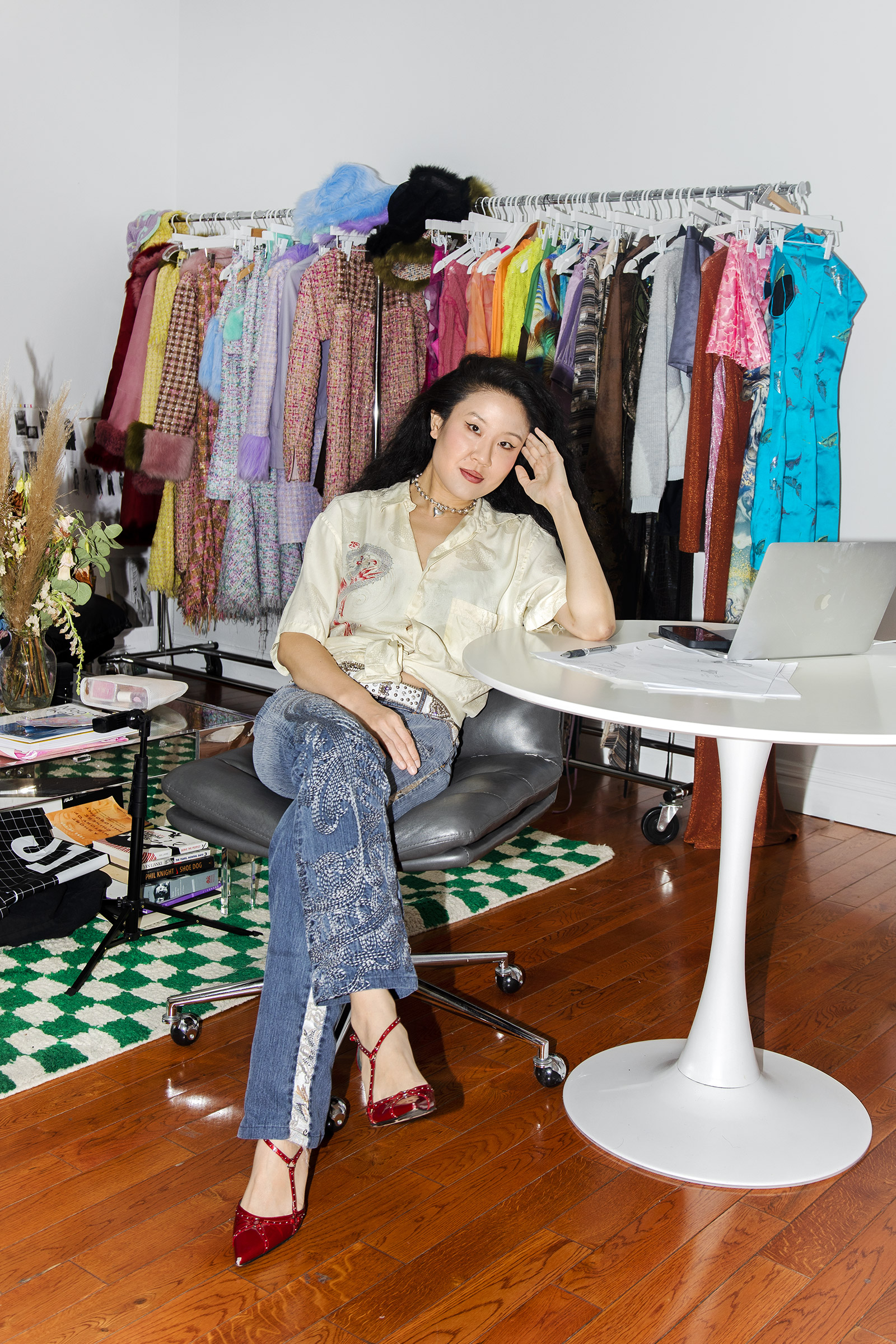To wear Kim Shui is to celebrate confidence. The fashion designer, who founded her eponymous brand in 2016, makes clothes for women who aren’t afraid to make a statement. Sheer qi paos, daring corset tops, brocade mini dresses with artful cut-outs, and curve-hugging trousers with lace-up embellishments have all become staples of her New York City-based brand, which is favored by the likes of Dua Lipa and SZA. Shui’s bold style was shaped by her experiences growing up in Rome, where as the American-born daughter of two Chinese immigrants, she was constantly confronted with her otherness. “I didn’t have a choice, I just naturally stood out,” she says. “At a certain point, instead of hiding it, I wanted to embrace it and put it at the forefront.”
Read More: The Long, Complicated, and Very Pink History of Barbiecore
This ethos has informed all aspects of Shui’s design. There’s her staunch commitment to inclusivity, which manifests in the racially and body-diverse casting of her runway shows and her expansive range of sizes. And then there’s her apparel itself, which pays homage to her Chinese heritage with details like mandarin collars and traditional Chinese prints, while slyly challenging conventions around gender and race with her subversive interpretations.

Shui, 32, dreamed of becoming a fashion designer since she was a child, but, at the urging of her parents, who thought investment banking would be a more stable path, studied economics and French in college. Having made her way back to her dreams, she now hopes that her clothes, with their multicultural influences, can help start conversations. Most importantly, she wants the women who wear her designs to feel empowered by them. “I want other people to feel great about themselves because that’s what fashion has been able to do for me,” she says. “It uplifted me and I hope that I can do that for other women too.”
- How Nayib Bukele’s ‘Iron Fist’ Has Transformed El Salvador
- What Makes a Friendship Last Forever?
- How to Read Political Polls Like a Pro
- Long COVID Looks Different in Kids
- What a $129 Frying Pan Says About America’s Eating Habits
- How ‘Friendshoring’ Made Southeast Asia Pivotal to the AI Revolution
- Column: Your Cynicism Isn’t Helping Anybody
- The 32 Most Anticipated Books of Fall 2024